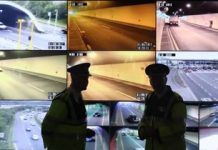The government of Brazil intends to collect a broad range of biographic and biometric information, including fingerprint, iris, face, voice, and gait biometrics about its 200 million citizens in a centralized database meant to be shared “as widely as possible” across government departments, say reports.
The database is mandated in a decree that suggests public policy improvement and simplified data sharing between government departments are the goal of the project. Information is to be shared as much as allowed by legal restrictions, such as the country’s General Data Protection Act, which goes into force in August of 2020. Data sharing will be carried out under three categories; one for public data not subject to restrictions, ‘restricted’ access for confidential data accessible by government agencies to perform specific tasks, and ‘specific,’ which grants access to certain agencies for legal purposes. The decree also mandates the creation of a Central Committee for Data Governance, made up of seven members from the Ministry of Economy, Brazil’s social security institute, and a secretariat to pursue transparency and prevent corruption.
The board of the National Authority for Data Protection, meanwhile, is yet to be announced, though it will in theory have oversight of the new data governance committee and the database. Data collected will initially include name, date of birth, address, parent names, numbers for ID, social security and voting credentials, and employment and corporate affiliation details. Biometrics are expected to be added during a second stage, though fingerprints are already collected for ID documents.
The database will be implemented primarily by the Secretariat for Digital Government, an agency of the Ministry of Economy. Biometrics have been taking off in Brazil, as the country has been working towards the implementation of a national biometric digital ID scheme, but consumer rights watchdog Idec recently blasted a plan to use facial recognition for social security claims.







